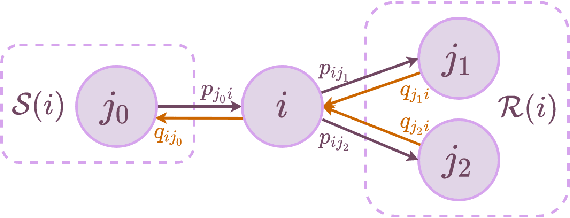General sum stochastic games with networked information flows
Paper and Code
May 05, 2022



Inspired by applications such as supply chain management, epidemics, and social networks, we formulate a stochastic game model that addresses three key features common across these domains: 1) network-structured player interactions, 2) pair-wise mixed cooperation and competition among players, and 3) limited global information toward individual decision-making. In combination, these features pose significant challenges for black box approaches taken by deep learning-based multi-agent reinforcement learning (MARL) algorithms and deserve more detailed analysis. We formulate a networked stochastic game with pair-wise general sum objectives and asymmetrical information structure, and empirically explore the effects of information availability on the outcomes of different MARL paradigms such as individual learning and centralized learning decentralized execution.
 Add to Chrome
Add to Chrome Add to Firefox
Add to Firefox Add to Edge
Add to Edge